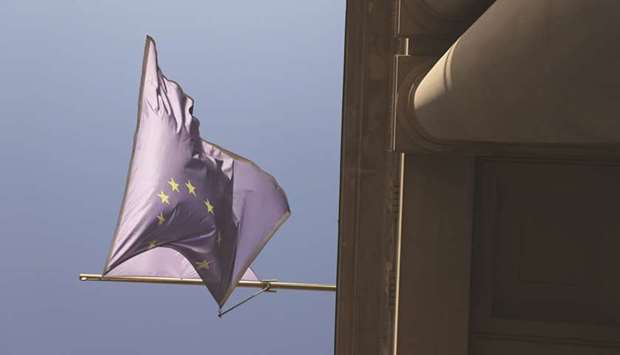World equities came under intense pressure yesterday from new eruptions in the US-China trade war, while oil rallied on simmering tensions in the crude-rich Middle East.
Equity investors began the day in underwhelming fashion in Asia, as the lack of a US-China trade deal jarred markets.
Negative sentiment spilled over into Europe, and then to US markets where stock valuations slumped massively.
“US stocks are falling decisively in early action, amid exacerbated US-China trade tensions as last week’s negotiations that ended without a deal and Friday’s increased tariffs on Chinese goods by the US were met with China’s retaliatory measures announced today,” analysts at the Charles Schwab brokerage said.
Negotiations in Washington ended on Friday without agreement and a massive US tariff hike on Chinese imports kicked in.
Then yesterday, President Donald Trump told China via Twitter not to retaliate, a warning ignored by Beijing where the government announced tariffs on $60bn worth of US goods from June 1.
“Judging by Trump’s tweets alone, the two nations are apparently nowhere near signing a trade deal,” said Fawas Razaqzada, a market analyst at Forex.com.
“And for the markets, this is all that matters right now.
Thus, for sentiment to improve again, Trump’s tone towards China will need to improve first and foremost,” he said.
Wall Street’s Dow index, which had dropped more than 400 points at the opening bell, was more than 600 points down two hours later, a fall of nearly 2.5%, while the tech-heavy Nasdaq fell over 3%.
Eurozone stock markets were over one% lower at the close, with London doing a little better.
London’s FTSE 100 closed 0.6% down at 7,163.68 points, Frankfurt’s DAX 30 ended 1.5% down at 11,876.65 points and Paris’ CAC 40 finished 1.2% down at 5,262.57 points, while the EURO STOXX 50 lost 1.2% at 3,320.74 points.
Markets remain on red alert over a trade war between the two big superpowers that observers warn could shatter global economic growth — and also hurt demand for commodities like oil.
“It’s Groundhog Day yet again, with yet another day of US-China focused selling taking hold,” said senior market analyst Joshua Mahony at trading firm IG.
White House economic advisor Larry Kudlow said Trump and China’s Xi Jinping could meet next month on the sidelines of the G20 summit to hash out their differences on trade — but no new talks are yet scheduled.
Trump had accused Beijing of reneging on its commitments and ordered new punitive duties — which took effect on Friday — on $200bn worth of Chinese imports, raising them to 25% from 10%.
He then ordered a tariff hike on almost all remaining imports from China, which are worth about $300bn, according to US Trade Representative Robert Lighthizer.
Some assets, like gold and some government bonds, have been doing well from the trade turmoil as investors ditch risky investments like stocks in a flight to safety.
Yesterday, some analysts were wondering whether cryptocurrency bitcoin should be added to the list after rising by $1,000 over the weekend to a nine-month high, which saw it breach $7,000.
Calling the surge “a mystery to investors”, FXTM research analyst Lukman Otunuga observed “the coincidental view” that bitcoin’s price rose at the same time as US-China trade tensions.
“While it’s far too premature to suggest that bitcoin has restored itself as a potential safe-haven asset for investors, the idea will attempt to pick up further momentum if the cryptocurrency continues to explode higher amid the risk-off conditions,” Otunuga said.
Oil prices charged higher yesterday as simmering tensions in the crude-rich Middle East eclipsed worries over the global demand outlook.
Saudi Arabia said yesterday that two of its oil tankers were damaged in mysterious “sabotage attacks” in the Gulf, as tensions soared in a region already shaken by a standoff between the United States and Iran.
Riyadh, Tehran’s regional arch-rival, condemned “the acts of sabotage which targeted commercial and civilian vessels near the territorial waters of the United Arab Emirates”, a foreign ministry source said.
The global oil market won support “on dealer concerns about supply disruptions in the Middle East and this despite market worries over global growth prospects”, noted Oanda analyst Dean Popplewell.

A European Union flag flutters outside the Frankfurt Stock Exchange. The DAX 30 ended 1.5% down at 11,876.65 points yesterday.


